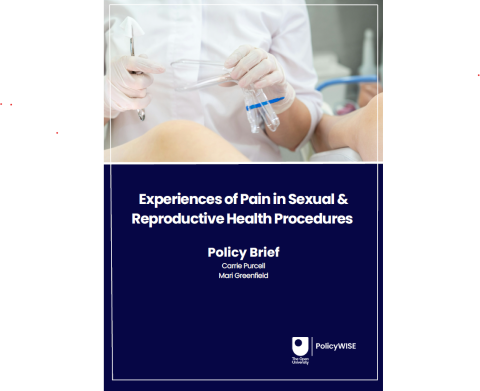Addressing pain in sexual and reproductive health procedures: why more action is needed across UK nations

This important policy brief explores the significant issue of pain experienced by women and people with a uterus during sexual and reproductive health (SRH) procedures across the UK.
Women and people with a uterus across the UK experience pain during procedures related to sexual and reproductive health (SRH). This pain can occur during procedures such as smear tests (cervical screening), abortions, intra-uterine contraceptive device (IUD or ‘coil’) fitting, or hysteroscopy.
These procedures are carried out in various healthcare settings from general practice to specialist hospital services.
Pain during these procedures is often seen as ‘normal’ or ‘unavoidable’, meaning it does not always get enough attention. This is partly because of outdated beliefs that women’s bodies are meant to tolerate pain, which can lead to their discomfort being overlooked.
Even though guidelines exist to help frontline health professionals manage procedure pain, many people continue to have very painful experiences during some procedures. In a qualitative survey which we conducted in January 2025 (report forthcoming), 150 respondents told us about extremely painful and distressing experiences.
This groundbreaking report from Dr. Carrie Purcell has 2 recommendations to improve the current situation:
- Women’s health policies in all four UK nations should officially recognise and address the issue of pain during sexual and reproductive health procedures. This would help to position the reduction of SRH procedure pain as a real healthcare priority. Sharing ideas and successful approaches between the nations could strengthen any improvements.
- Health professionals need better training and clear guidelines to not only manage SRH procedure pain but communicate effectively around it. This means making sure patients are given honest information about what to expect. It would create an environment where they feel able to say when they are in pain and can expect to have this taken seriously. Supporting these steps would prevent pain from being dismissed and reduce burden on patients at the time of procedures.
Carrie is a researcher at The Open University in Scotland, with extensive experience of applied and policy-oriented sexual and reproductive health research.
